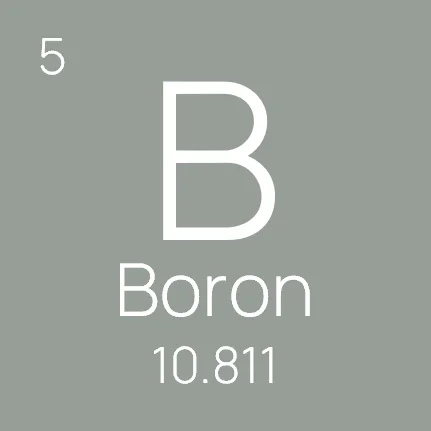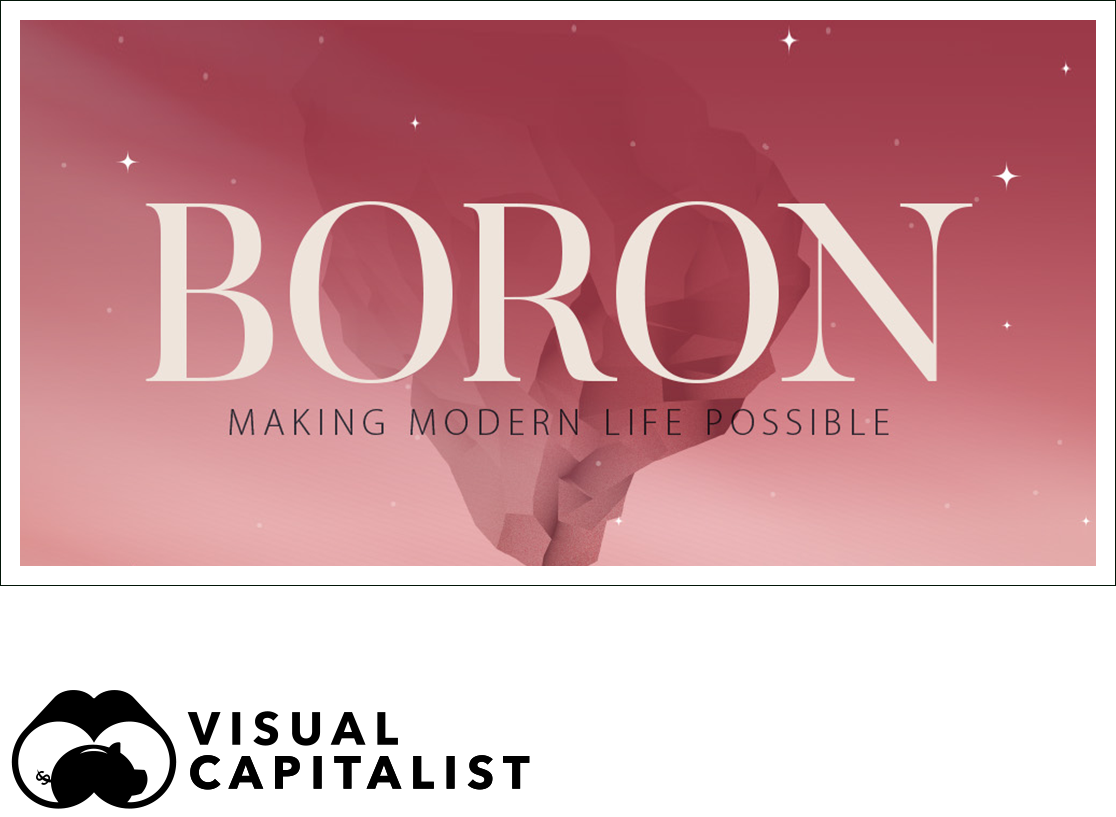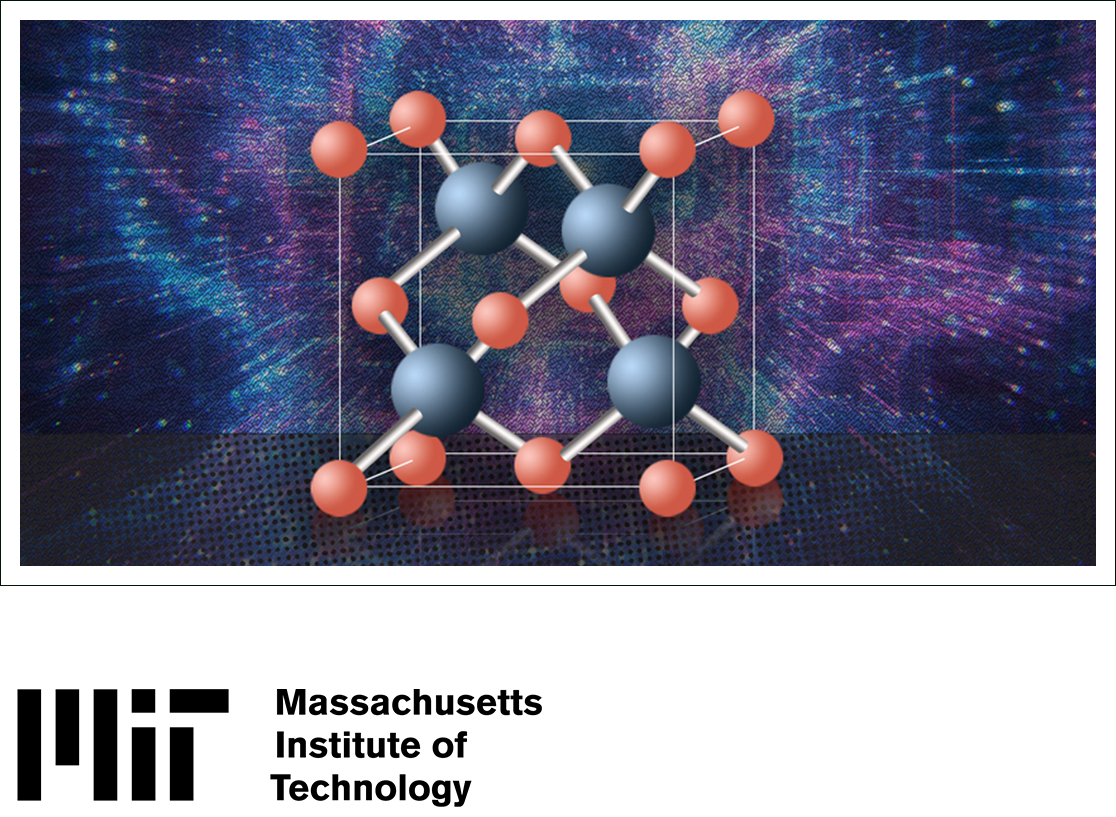Exploring Boron’s market and applications
The Company’s Columbus Lithium-Boron Project has demonstrated multi-commodity potential. The lithium market and applications are more broadly understood, so the content below aims to provide more information on the lessor known Boron market and emerging applications for educational/information purposes.
Boron: a critical element growing in demand
The Boron Market is rapidly emerging as a critical mineral due to its use in numerous high-tech and clean energy applications, making the presence of boron mineralization at the Columbus Project potentially significant.
The boron market is expected to grow to more than $3 billion by 2028¹ with Rio Tinto’s US Borax and Turkey’s state-owned Eti Maden collectively accounting for an estimated 85 percent of global supply².
Significant boron deposits are recognized as being rare and Canter Resources considers the potential for significant boron concentrations at Columbus to be excellent.
Past borax brine production at Columbus (late 1800’s), significant boron concentrations in clays at Ioneer’s ($206M USD market capitalization) feasibility-stage Rhyolite Ridge Project (one of only two known boron-related development-stage projects in the US) located 17 miles from Columbus (sharing the same volcanic source rocks) and significant boron concentrations in brines from the Company’s initial shallow drilling underpin the discovery potential.


² “Boron: The Overlooked Critical Material”. Seeking Alpha. 2022.
³ “Boron Market – Industry Analysis and Forecast (2024-2030)”. Maximize Market Research PVT LTD. 2024.
⁴ “Boron Market Size & Share Analysis – Growth Trends & Forecasts (2024 – 2029)”. Mordor Intelligence. 2024.
⁵ “Assessment of Boron Reserves and Resources Worldwide”. International Boron Association Report. 2021.
Did you know?

Boron, the fifth element on the periodic table, is a rare light metalloid which does not exist by itself in nature. Rather, boron combines with oxygen and other elements to form boric acid, or inorganic salts called borates.
Boron is already a critical element
in many major markets
Boron is a critical element across various major markets due to its unique properties. In glass and ceramics, it enhances thermal and chemical resistance, durability, and reduces thermal expansion. It improves cleaning efficiency in detergents as a water softener and bleaching agent. The pharmaceutical industry uses boron compounds in drug development and synthesis. In metallurgy, boron strengthens metals and alloys. Additionally, boron-based flame retardants enhance fire resistance in materials. Boron is indispensable in these diverse and established industries.
![]()
Glass and Ceramics
![]()
Detergents and Cleaning Products
![]()
Agriculture
![]()
Metallurgy
![]()
Flame Retardants
![]()
Pharmaceuticals
Boron is a catalyst for
technological evolution and innovation
Boron’s massive upside is driven by these emerging industries
Driving Innovation
in Military
Applications
Advanced anti-corrosion Boron properties are spearheading enhanced durability and strength among steel shells, protective vests, helicopters, and tanks.
Revolutionizing
Aerospace
Engineering
Boron alloys create corrosion and oxidation-resistant materials, enhancing the durability, longevity, and performance of aerospace components in extreme environments.
Renewable
Energy
Innovations
Used to synthesize energy-rich molecules, improve solar cell efficiency, produce high-powered magnets for wind turbines, and regulate nuclear fission processes in nuclear reactors.
Advancing
Semi-Conductors
& Electric Vehicles
Boron enhances conductivity and performance in semiconductor devices, as well, offers high energy density and stability in batteries for electric vehicles.
The USGS Inflation Reduction Act
is expected to include Boron on the Critical Metals List in 2025, highlighting its strategic importance and underlining its crucial role in national security and economic stability across diverse industries.

Corporate Presentation
Learn more about the opportunity at Canter Resources



